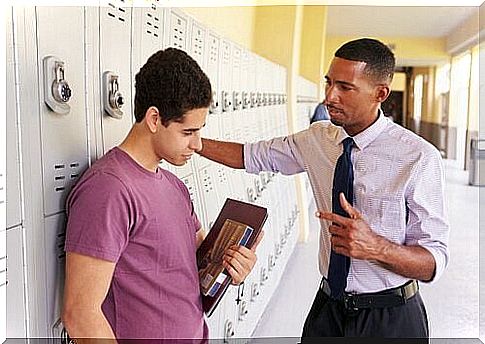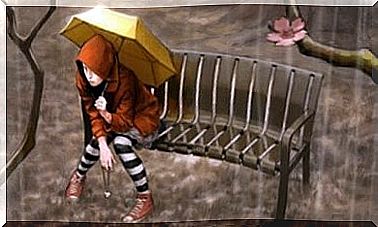How To Deal With A Student Who Puts Us To The Test?

As teachers, when a student challenges us, we may experience some confusion about how we should react. We tend to lose our composure and deal with the situation inappropriately. This can trigger laughter and teasing from other students and make us feel like we are unable to find a solution to this problem. So we are going to give you some tips to deal with this type of circumstance that occurs more often than we would like.
Some studies, such as Students: Opponents in Classroom Power Relations. Testimonials from teachers, where the student is defined as an adversary. However, the reality is different. Thinking in this way only causes teachers to behave in ways that may not be adequate, punishing that student who tests him through silence, indifference or self-awareness. pressing his position of power.
One thing is nevertheless very interesting in the study just mentioned. These are the testimonies of the various teachers. Thanks to them, we will be able to see the good or bad practices that are taking place in the classroom and find out how we can change them to get the situation under control.
The strength of the group
When we face a student who challenges us, we need to identify if this is happening in a concrete context. For example, when he is surrounded by friends. Group strength is something that makes young people more daring (this also happens with adults in their daily lives) and prompts them to do certain things that they would not be doing on their own.
One strategy that usually works in the face of a challenging student is to identify who the group leaders are and “become friends” or build a trusting relationship with them. For this, it is necessary to speak individually to each member of the group, as one teacher did:

Power struggle
A student can also test us to find our weak points. This attitude can be particularly intense during the first hours of class that we have with him. He thus tries to determine if he can make us questionable jokes, make us lose our temper or, on the contrary, fulfill his role of student and respect us.
On this point, it is extremely important to know how to manage your emotions. We must not under any circumstances come into conflict with the student or play into his game. It is important to play our role, making ourselves respected as an adult. Even if we are disturbed by the way the student challenges us, we must learn to ignore it or to respond appropriately and resourcefully. Let us now study some concrete situations.
The student who contradicts the teacher
He considers himself right, even if he is wrong. He refuses to accept a teacher’s explanation and solution to a problem. In this case, you shouldn’t lose your temper. We must continue to argue and rely on evidence to show that the resolution of the exercise we are proposing is the right one.
If the situation becomes unbearable, we have to make him understand that he is responsible for the way he wants to solve things. We can also ask a student (to whom we will have corrected the exercise) to solve this exercise on the board. Seeing his classmates achieve the same result as the teacher, and under pressure from the group, the pupil will stop claiming that this is all wrong.
The student who can’t stand the teacher’s mistakes
This is another type of student who tests us. He can’t stand the teacher making mistakes, taking time to help him solve an exercise or having to think about it in order to find a solution on his own. These students usually act by moving on to another exercise while we try to solve the previous one. They say to themselves: what is the point of making efforts for a battle against a problem that another is already going to solve?

In these situations, it is important to work with the student’s problem solving. As teachers, we will act as support, helping young people to solve the difficulties they encounter. We will not have the answers, we will seek them with them.
This is only a sample of the situations we may face. In fact, you should know that many of the attitudes we have described are nothing more than a reflection of the problems that every student may experience at home. However, in the face of any challenge they present to us, we must maintain control of the situation, sometimes putting the defense of the rules of communication and learning before our own knowledge. Because if communication breaks down, everything will become even more difficult.









